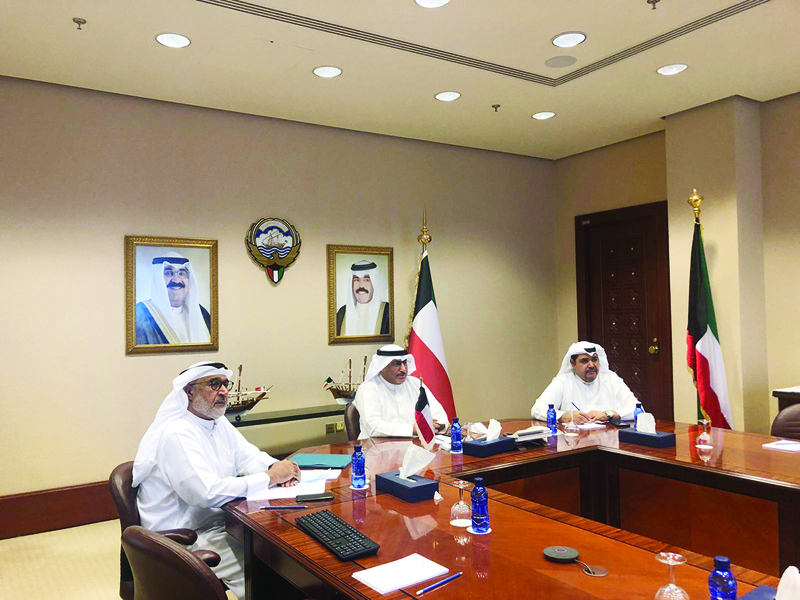LONDON: The Organization of Petroleum Exporting Countries (OPEC) and its key allies decided at a meeting yesterday to stick to planned moderate increases in output for November despite soaring crude prices. A statement released after the brief videoconference meeting of the OPEC+ alliance said that participants had agreed to stick to the schedule agreed in July, namely to "adjust upward the monthly overall production by 0.4 million bpd (barrels per day) for the month of November 2021".
Kuwait's oil minister yesterday praised the effective polices of OPEC and its allies amid the COVID-19 pandemic, saying such measures helped balance the global oil market. There is prevailing sense of "optimism" in the global oil market given the OPEC+ alliance's commitment to a deal on hiking output to 400,000 bpd on a monthly basis until November, Mohammad Al-Fares said in an oil ministry statement.
As per the deal, Kuwait will contribute a share of 27,000 bpd, added the minister, saying that as vaccination campaigns pick up speed across the world, an economic rebound is likely to occur, helping restore stability and balance to the oil market. On the gradual hike in oil production, OPEC and its ally Russia will continue to tread cautiously given the challenges facing the market, Fares highlighted.
Markets have been sent surging further by yesterday's decision, with prices for the benchmark WTI contract reaching $78.38 and Brent contracts trading at $82, the highest levels since November 2014 and October 2018 respectively. The 23 countries in the group took under an hour to reach the decision after the meeting started shortly after 1300 GMT. Their statement issued after the meeting said the decision had been taken in light of "current oil market fundamentals".
While higher prices benefit producers in the form of increased exports and revenues, there are medium-term drawbacks if rising prices stifle the fragile post-pandemic economic recovery. The trend could also entice new competitors into the market, making the exploration of new fields more profitable or even encouraging a trend towards renewables.
US President Joe Biden's administration urged increased output in August, when National Security Advisor Jake Sullivan said the cartel was not doing "enough" to boost oil production. Analyst Bjarne Schieldrop of Seb said yesterday that, given current conditions, "OPEC+ can thus no longer claim that they are working to stabilize the global oil market". "The current chaos in the global coal and natural gas markets cannot be ignored, either. Holding back oil supply now is adding pain to injury to global consumers," he said.
In a study published last week, Morgan Stanley analysts noted the possibility of "demand destruction" if oil prices creep over $80 a barrel. Iraq's oil minister has told the country's state news agency the group is working towards keeping prices at around $70. However, in the current market, Goldman Sachs sees Brent crude oil soaring towards $90 within months.
There had been questions over the willingness - not to mention ability - of some OPEC+ members to increase output in any case. Nigeria, Angola and Libya "continue to face their perennial infrastructure, investment, and security challenges", according to Croft. Tamas Varga, an analyst at PVM Oil Associates, said: "Delayed maintenance works and lack of investment, partly due to the health crisis and partly because of the transition from fossil fuel to renewable energy, are to blame for these failures".
Contrary to the normal OPEC trend of countries exceeding their production quotas, in recent months most member states have stuck to them or in some cases even fallen short. This suggests that the group may not be able to rapidly increase production in the short term despite it having a current theoretical reserve of five million bpd in the ground. The OPEC+ alliance said that their next meeting would be on Nov 4. - Agencies



